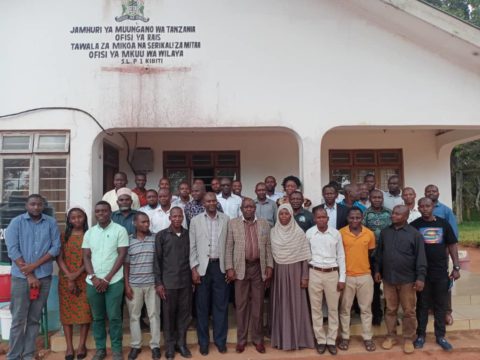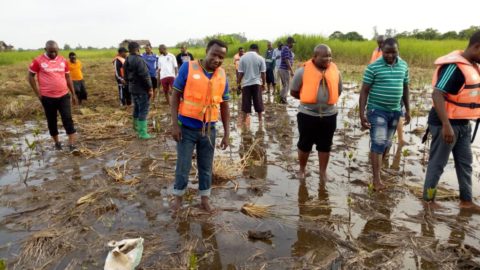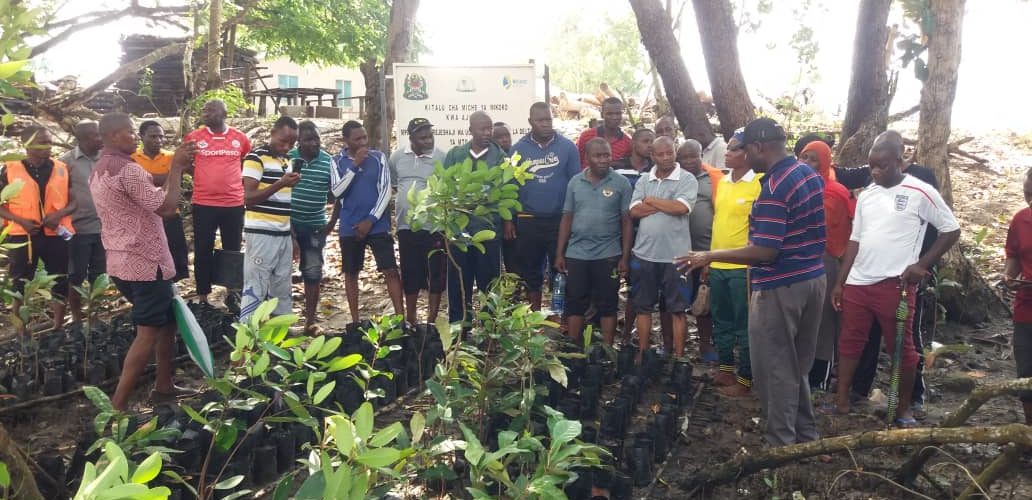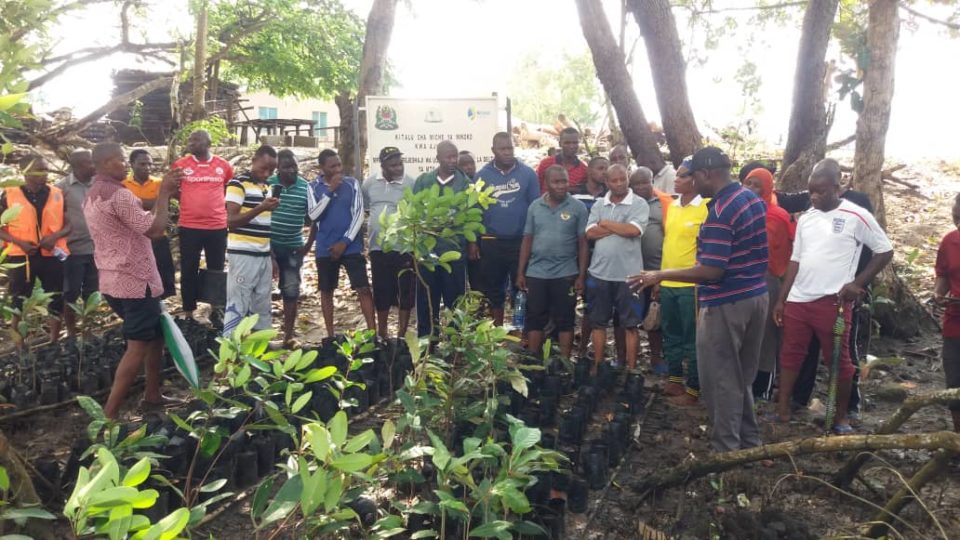As part of outreach and awareness efforts, Wetlands International in collaboration with the Institute of Marine Sciences University of Dar es Salaam recently conducted a five-day training of trainers’ workshop on mangroves and their conservation in Rufiji Delta. The 34 trainees were mainly head teachers and teachers of environment drawn from primary and secondary schools, and ward education coordinators from the Delta.
Hosted by Kibiti District Council and with support from the Tanzania Forest Services, the training workshop’s overall objective was to impart practical skills and knowledge among the communities living adjacent the Rufiji Delta Forest Reserve with an expected outcome of establishing mangrove school clubs.

Facilitated by Dr Mwita Mangora of the Institute of Marine Sciences and Emmanuel Japheth of Wetlands International, the training workshop included a field excursion to two mangrove restoration sites and nurseries. The trainees learned about mangrove species in Rufiji, the importance of mangroves conservation and protection, and restoration efforts. Further, they were enlightened on their key role in the inspiration and dissemination of knowledge to the communities in better understanding these efforts.

Having laid this foundation, mangrove schools clubs will be established gradually after the students and communities are informed of their objectives. The clubs will directly involve school children and their teachers in the protection and conservation of mangrove biodiversity while also engage them in outreach activities such as nursery establishments, tree planting and knowledge sharing with the larger community. This initiative will also empower students and teachers to take up meaningful environmental activities and projects beyond the school curriculum
Ultimately, although mangrove awareness and education will be initiated in the classroom, it will expand to the community by engaging the next generation in action-based learning. Upon completion, approximately 25,000 community members will be impacted directly or indirectly by these outreach efforts.
Degradation of Rufiji mangroves have been accelerated by human activities such as clearing land for rice farming, cattle grazing and illegal harvesting for timber and poles. The mangrove restoration project uses an inclusive and effective community-led approach under the Mangrove Capital Africa programme supported by DOB Ecology and the Blue Action Fund.

